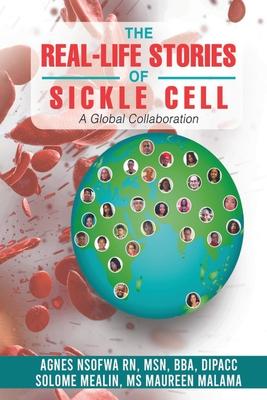It's deemed the world's most common genetic disorder, but why is sickle cell disease still not fully understood in communities where it's very prevalent. The Real-Life Stories of Sickle Cell - A Global Collaboration presents stories from different parts of the world to enlighten us about the effects of this condition. Stories from sickle cell warriors, caregivers, healthcare professionals, and advocates capture these people's understanding and awareness of Sickle Cell Disease. You will read stories of hope, resilience, frustration, and sadness as we strive to bring these stories to the world. Although being the most common disorder, what this project taught us was that even people living with sickle cell disease do not get adequate treatment in most parts of the world. Sickle cell warriors are still stigmatised in different parts of the world. That sickle cell warriors would rather hide from peers or employers that they are affected, fearing the treatment they may receive. We have learned of warriors bearly getting adequate treatment because it's simply not available in their area. These stories will give you that understanding of how much we still need to do as a sickle cell community, to double our efforts to support people impacted from different parts of the world, especially developing countries.

The Real-Life Stories Of Sickle Cell - A Global Collaboration
It's deemed the world's most common genetic disorder, but why is sickle cell disease still not fully understood in communities where it's very prevalent. The Real-Life Stories of Sickle Cell - A Global Collaboration presents stories from different parts of the world to enlighten us about the effects of this condition. Stories from sickle cell warriors, caregivers, healthcare professionals, and advocates capture these people's understanding and awareness of Sickle Cell Disease. You will read stories of hope, resilience, frustration, and sadness as we strive to bring these stories to the world. Although being the most common disorder, what this project taught us was that even people living with sickle cell disease do not get adequate treatment in most parts of the world. Sickle cell warriors are still stigmatised in different parts of the world. That sickle cell warriors would rather hide from peers or employers that they are affected, fearing the treatment they may receive. We have learned of warriors bearly getting adequate treatment because it's simply not available in their area. These stories will give you that understanding of how much we still need to do as a sickle cell community, to double our efforts to support people impacted from different parts of the world, especially developing countries.